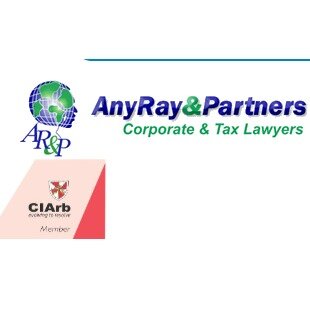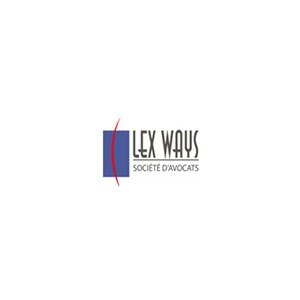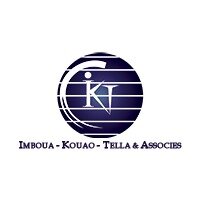Best Energy, Environment & ESG Lawyers in Ivory Coast
Share your needs with us, get contacted by law firms.
Free. Takes 2 min.
Or refine your search by selecting a city:
List of the best lawyers in Ivory Coast
About Energy, Environment & ESG Law in Ivory Coast
Energy, Environment, and Environmental, Social, and Governance (ESG) laws in Ivory Coast represent a growing and evolving field. With the country's rapid economic development, especially in the energy sector, there is an increasing focus on sustainable practices, environmental protection, and compliance with global ESG standards. These laws regulate the exploitation and use of natural resources, promote investment in renewable energy, and ensure that businesses adhere to environmental and social responsibility benchmarks. Effective legal frameworks are in place to manage the balance between economic growth and protecting the environment for future generations.
Why You May Need a Lawyer
There are several situations where consulting a legal professional skilled in Energy, Environment, and ESG matters is essential. Businesses planning to invest in energy projects or develop natural resources need advice to navigate complex compliance requirements. If your company is expanding its operations and must assess environmental impact, an attorney can help manage necessary permits and approvals. Individuals or communities affected by large-scale projects may seek legal counsel to understand their rights and negotiate compensation or mitigation measures. Environmental advocacy groups and non-governmental organizations also benefit from legal guidance when pushing for regulatory reforms or taking part in public consultations. Finally, keeping up with ESG reporting and compliance is critical for companies operating or raising capital both locally and internationally.
Local Laws Overview
Ivory Coast has established a comprehensive legal framework regulating the energy sector, environmental protection, and ESG compliance. Key aspects include:
- The Petroleum Code and Electricity Code govern the exploration, production, and distribution of energy resources, emphasizing the need for licenses and environmental permits.
- The Environmental Code outlines requirements for Environmental Impact Assessments (EIAs) for all major development projects and sets penalties for pollution and non-compliance.
- The government is increasingly adopting ESG criteria in line with international standards. Companies must disclose their environmental practices, community engagement efforts, and governance structures.
- There are specific rules regarding land use, coastal zone management, forest conservation, and biodiversity protection, often enforced by the Ministry of Environment and Sustainable Development.
- Ivory Coast is a party to several international agreements, such as the Paris Agreement on climate change, which further shape national policies and obligations.
Frequently Asked Questions
What is an Environmental Impact Assessment in Ivory Coast?
An Environmental Impact Assessment, or EIA, is a mandatory study that evaluates the potential effects of a project on the environment before approval. It is required for projects such as mining, energy, infrastructure, and agro-industry developments.
Who is responsible for enforcing environmental laws?
The Ministry of Environment and Sustainable Development is the primary enforcement authority, often working in collaboration with sector-specific bodies like the Ministry of Mines, Petroleum, and Energy.
Do foreign companies need special permits to operate in the energy sector?
Yes, foreign and local companies must obtain relevant permits and licenses before conducting energy-related activities. These include exploration licenses, production agreements, and environmental permits.
How are communities protected during large projects?
The law requires project developers to consult with affected communities, provide adequate compensation, and implement mitigation measures for environmental and social impacts. Failure to do so can result in legal challenges and project delays.
What are the main penalties for non-compliance with environmental laws?
Penalties include fines, suspension or revocation of permits, and, in some cases, criminal prosecution. Authorities may also require companies to undertake remedial measures or restoration activities.
What is included in ESG reporting for companies?
ESG reporting generally covers how a business manages its environmental impact, social responsibilities (such as labor practices and community engagement), and governance structures. Reporting frameworks are being harmonized with international standards.
Are renewable energy projects supported under the law?
Yes, Ivory Coast's energy policy encourages investment in renewable energy such as solar, wind, and hydroelectric projects. There are incentives and simplified procedures for projects that contribute to national sustainability goals.
Can individuals or organizations challenge projects they believe are harmful to the environment?
Individuals, NGOs, and communities can file objections or even take legal action if they believe a project violates environmental laws or fails to meet regulatory standards. There are established procedures for such appeals and reviews.
How do international treaties affect local environmental and ESG obligations?
Ivory Coast integrates its international commitments into domestic law. This means that obligations under treaties like the Paris Agreement are reflected in national regulations and company requirements.
What role does the government play in promoting ESG compliance?
The government sets policies, monitors compliance, and encourages best practices through incentives and penalties. It also collaborates with international organizations to promote sustainable development and improve ESG standards in the country.
Additional Resources
For those seeking further information or assistance, the following institutions and organizations play a vital role in Energy, Environment, and ESG matters in Ivory Coast:
- Ministry of Environment and Sustainable Development (responsible for environmental policy and enforcement)
- Ministry of Mines, Petroleum, and Energy (regulates the energy sector)
- Agence de Gestion des Parcs Nationaux (manages protected areas and biodiversity conservation)
- Ivorian Bar Association (provides legal referrals and resources)
- NGOs such as CIAPOL and the World Wildlife Fund, who focus on environmental advocacy and community engagement
Next Steps
If you need legal assistance in Energy, Environment, or ESG matters in Ivory Coast, start by identifying your specific needs, such as project compliance, dispute resolution, or regulatory advice. Gather all relevant documents and project plans before consulting a qualified lawyer with experience in these sectors. The Ivorian Bar Association and government ministries can help you locate accredited legal professionals. Consider reaching out to relevant NGOs for guidance, especially if your issue involves community rights or advocacy. Keeping abreast of ongoing legislative changes and international standards will also help you make informed decisions about your projects and obligations.
Lawzana helps you find the best lawyers and law firms in Ivory Coast through a curated and pre-screened list of qualified legal professionals. Our platform offers rankings and detailed profiles of attorneys and law firms, allowing you to compare based on practice areas, including Energy, Environment & ESG, experience, and client feedback.
Each profile includes a description of the firm's areas of practice, client reviews, team members and partners, year of establishment, spoken languages, office locations, contact information, social media presence, and any published articles or resources. Most firms on our platform speak English and are experienced in both local and international legal matters.
Get a quote from top-rated law firms in Ivory Coast — quickly, securely, and without unnecessary hassle.
Disclaimer:
The information provided on this page is for general informational purposes only and does not constitute legal advice. While we strive to ensure the accuracy and relevance of the content, legal information may change over time, and interpretations of the law can vary. You should always consult with a qualified legal professional for advice specific to your situation.
We disclaim all liability for actions taken or not taken based on the content of this page. If you believe any information is incorrect or outdated, please contact us, and we will review and update it where appropriate.
Browse energy, environment & esg law firms by service in Ivory Coast
Ivory Coast Attorneys in related practice areas.
Browse energy, environment & esg law firms by city in Ivory Coast
Refine your search by selecting a city.












